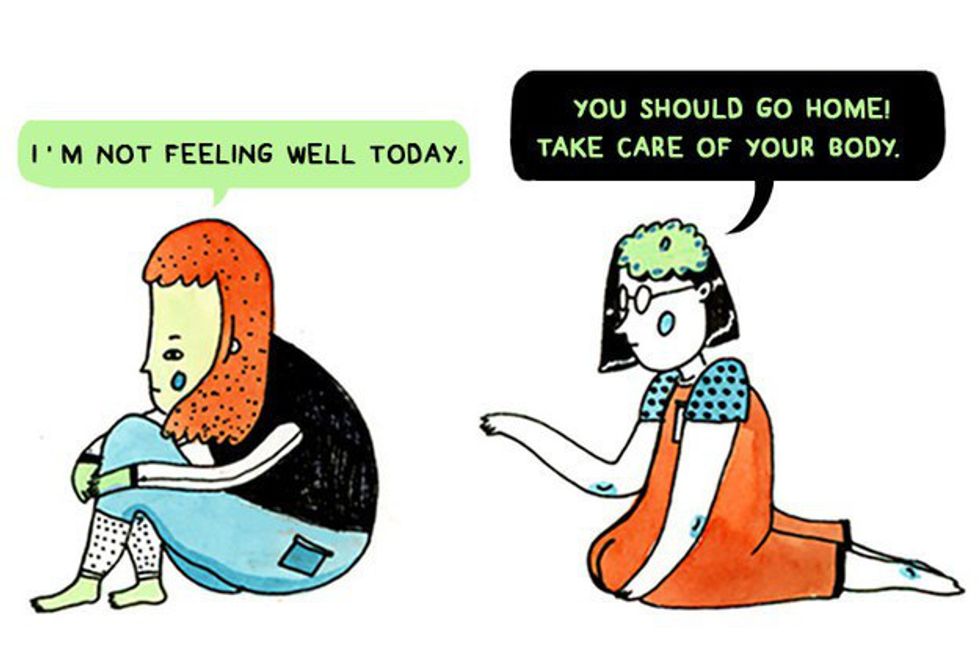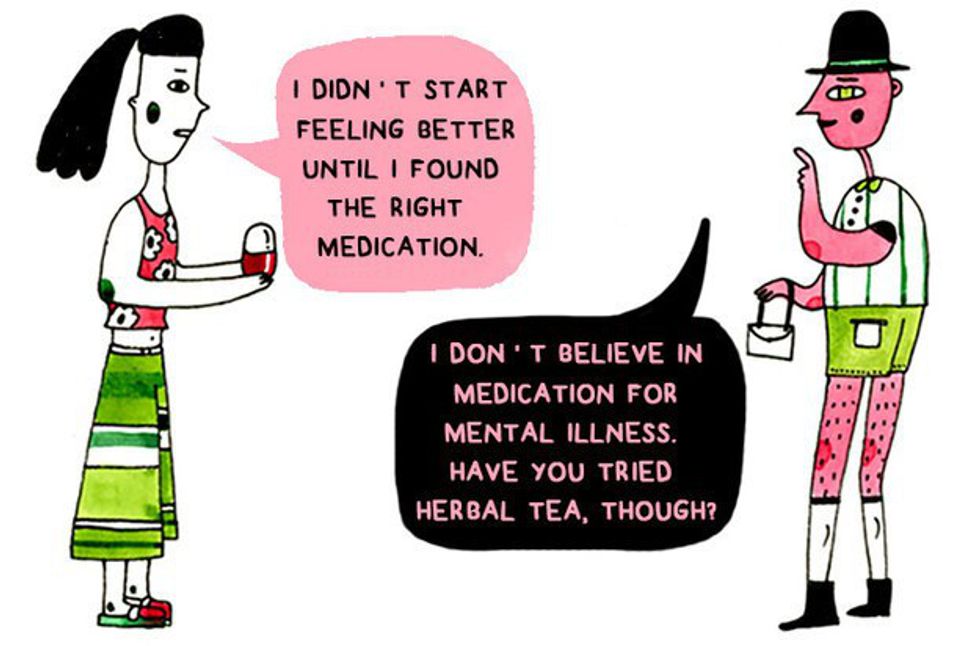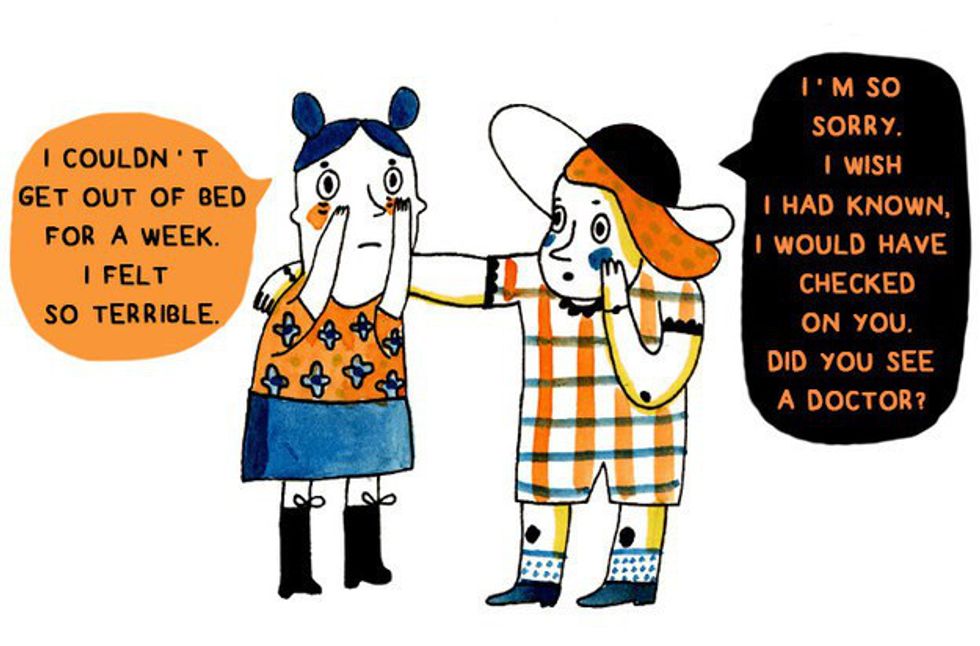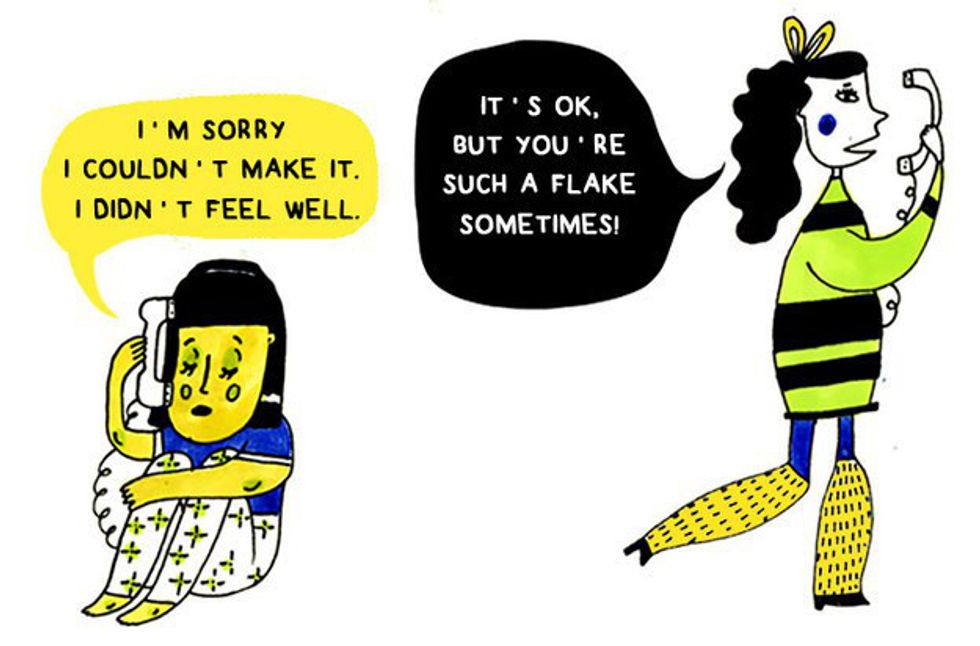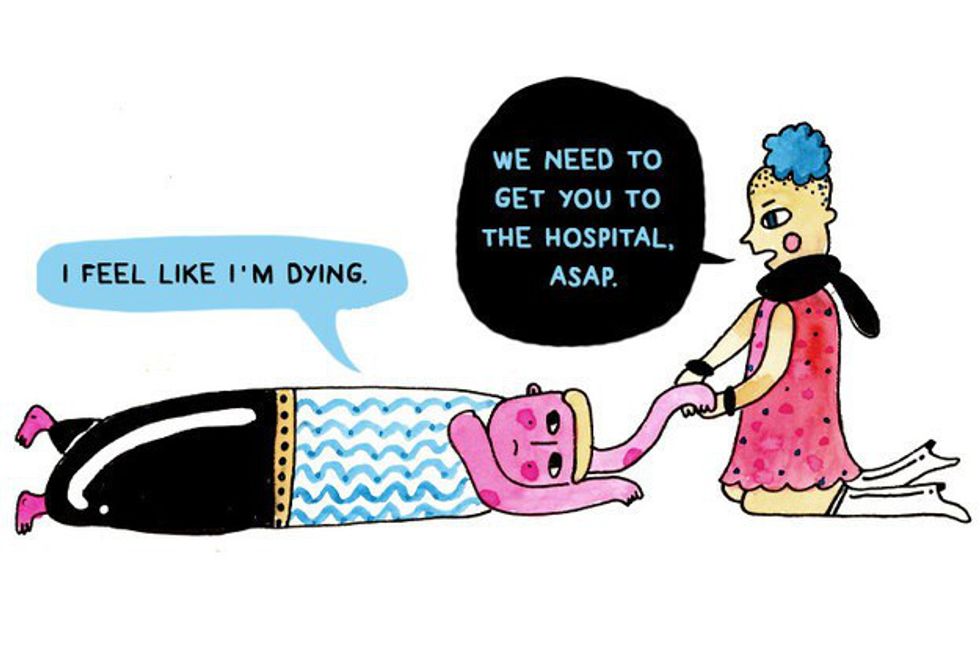Last quarter in my Psych 01 class, my professor had us raise our hands if we or someone we knew dealt with a mental illness; every single person in the lecture hall raised their hands.
Mental illness affects 1 in 5 adults, 1 in 5 children from the ages of 13-18, and 13 percent of children ages 8-15 according to NAMI, the National Alliance on Mental Illness. NAMI also states that mood disorders are the “third most common cause of hospitalization in the U.S. for [those] aged 18-44” and that suicide is the “second leading cause of death for people aged 15-24." So why then don’t we address it more in society? The stigma. The stigma towards mental health is illustrated beautifully (and accurately) in this set of cartoons from Buzzfeed that compares physical illness (first images) and mental illness (second image):
While invalidating someone’s mental health not only makes them feel like they are even crazier than they feel, it also lowers their chances of reaching out to medical professionals and getting the help that the need. In fact, NAMI also states only 41 percent of adults who have a mental illness received mental health services and only 50.6 percent of children aged 8-15 received help. That means that about half of kids with a mental illness and over half of the adults with a mental illness have not received help.
By avoiding reaching out for help, the individual with a mental illness does not allow himself or herself to get better and often their illness worsens. Sometimes, it will even worsen to the point where they feel they have to take their own lives.
Kevin Hines was someone who was pushed to this point. He jumped off the Golden Gate Bridge in San Francisco, California. Fortunately, he was one of the 1 percent of those who jump off the bridge to survive. He said that the moment he jumped he instantly regretted it. He now speaks out about his attempted suicide and uses his story to help those who are contemplating a similar option.
Suicide is never the answer. Your life is worth so much more than you will ever be able to comprehend. You are here for a reason, but you will never get to know that reason if you end your own life.
In 2011, Demi Lovato spoke out about her own mental illness. Now Lovato raises awareness towards mental illness and attempts to end the stigma towards mental illnesses altogether. She has spoken with members of the government in D.C. about it and raises awareness through her Twitter (which boasts over 32.3 million followers).
Mental health is an extremely hard illness to live with between the stigma, the way it affects your daily life, everything. But it is possible, and it is certainly worth it.




